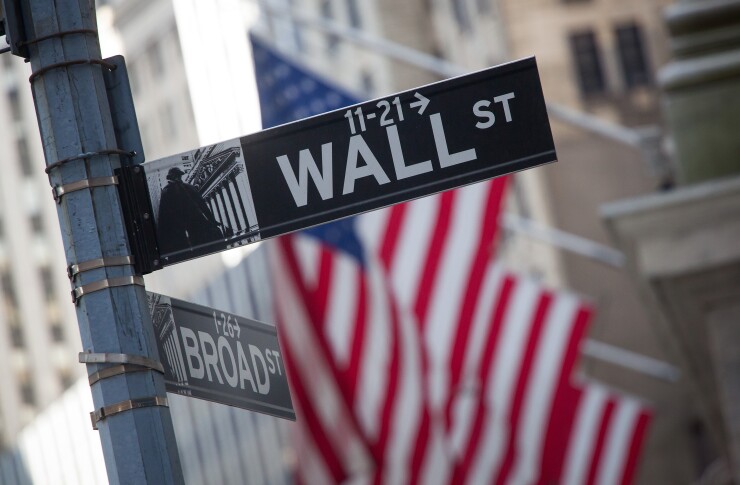
(Bloomberg) --The average Wall Street bonus dropped slightly last year as banks kept compensation reined in amid an ongoing deal slump and the number of employees working in the securities industry ticked up.
The average annual cash bonus fell 2% to $176,500 in 2023, the lowest since 2019, according to an analysis by New York State Comptroller Thomas DiNapoli. The drop was far less dramatic than it was in 2022, when the average bonus slumped 25%. Industrywide, the bonus pool was $33.8 billion, unchanged from the previous year and far below the $42.7 billion total in 2021.
"Wall Street's average cash bonuses dipped slightly from last year, with continued market volatility and more people joining the securities workforce," DiNapoli said in a statement Tuesday. "While these bonuses affect income-tax revenues for the state and city, both budgeted for larger declines so the impact on projected revenues should be limited."
The pervasive slump in mergers and initial public offerings continues to weigh on banker bonuses as interest rates remain elevated, crimping capital-markets activity. The chief executives at some of the biggest US banks are
Meanwhile, even with firms including
The strength in employment comes from a recovery in trading activity, particularly in the private-credit sector, DiNapoli said on a call Tuesday. The $1.7 trillion private-credit market has boomed, fueling intense competition for talent.
The comptroller's estimate is based on trends in personal income-tax withholdings and includes cash bonuses for work in 2023 as well as bonuses deferred from prior years that have been cashed in. It doesn't take into account stock options or other types of deferred compensation.
Wall Street's continued push to bring more workers back into the office has led to increased spending in the city and more subway ridership, DiNapoli said. Financial firms including





